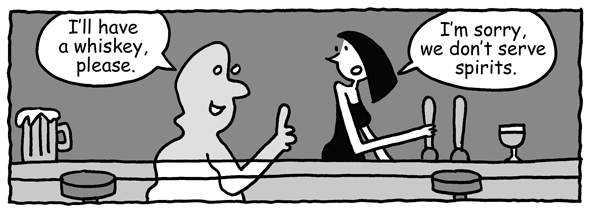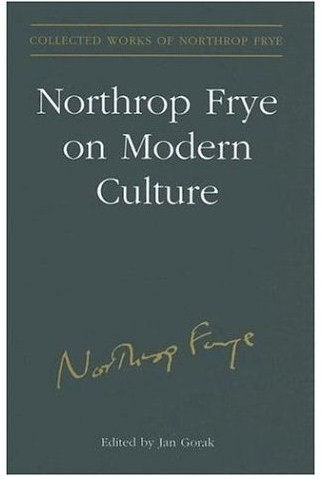
Responding to Michael Dolzani, Matthew Griffin and Clayton Chrusch
I think the issue of whether or not imagination and fact are incompatible in Frye has to be seen in terms of his theory of language. We get two elaborate accounts of this theory in the first chapters of both The Great Code and Words with Power. A briefer version is to be found in chapter 1 of The Double Vision, where Frye says, “The reason for basing kerygma on mythical and metaphorical language is that such a language is the only one with the power to detach us from the world of facts and demonstrations and reasonings, which are excellent things as tools, but are merely idols as objects of trust and reverence” (18) A bit earlier he has remarked, “if we encounter metaphors in poetry, we need not worry about their factual absurdity.” That’s because poetic metaphor, like myth and all other products of the imagination, belong to a phase of language different from the language of fact, reason, demonstration, historical truth, and the like.
The opposition between fact and imagination is related, I believe to Hegel’s distinction between the “for-itself” and the “in-itself,” which Frye glances at in “The Dialectic of Belief and Vision.” The distinction is to be found in Hegel’s Phenomenology of Spirit, p. 294 ff. Hegel’s very abstract and difficult prose provides a formidable obstacle to my small brain. But if I understand what he’s getting at in describing these two opposing forces, the “for-itself has to do with thought, with the self-consciousness that comes from our being post-Enlightenment people. It’s limited. It’s related to actuality, human law, the external world of culture and civilization, faith expressed in conceptual or Enlightenment terms, truth as objective factual description. On the other hand, in-itself is a matter of getting beyond Enlightenment rationality to something above and beyond historical self-consciousness. It’s related to possibility, faith, harmony, consciousness of the Notion (Begriff), the spiritual world. It’s a matter of vision. “For-itself” belongs to the world as it is––the world of fact. “In-itself” belongs to the world as it might or should be––the world of the imagination.
Frye’s account of this distinction immediately precedes his commentary on Hebrews 11:1, the passage mentioned by Matthew Griffin that Frye continued to puzzle over, most fully in his sermon “Substance and Evidence.” For those who might be interested in following up on the passage that Griffin says is the key to his reading of Frye, I reproduce immediately following four of the chief places Frye seeks to untangle the meaning of “faith is the substance of things hoped for, the evidence of things not seen,” the commentaries having been written over a seventeen-year span.
Continue reading →

